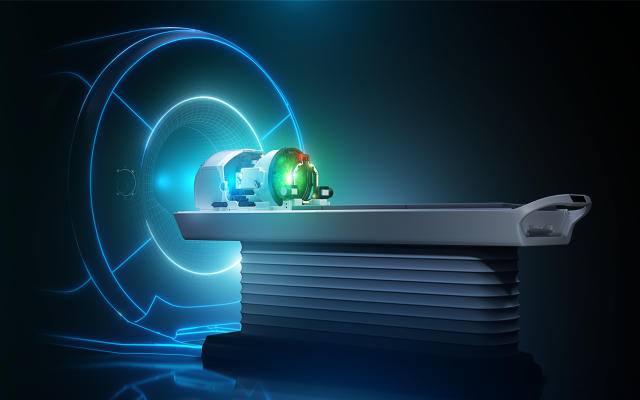

Tirat Carmel, Israel-based Insightec got FDA nod in 2016 after clinical study showed treatment is effective and safe.
Ailments like Essential Tremor, a disease that causes involuntary trembling of head, hand, and voice, and Parkinson’s disease, which causes uncontrolled movements in different parts of the body, affect the everyday life of millions of people around the world, turning easy and yet fundamental actions into tasks that are difficult to achieve or to complete efficiently.
Now, Israeli startup Insightec says it has developed a non-invasive technology that helps alleviate the symptoms of these diseases. The firm obtained US Food and Drug Administration (FDA) approvals for its technology in 2016 and 2018.
Essential tremor, a neurological disorder that commonly has a hereditary nature, affects more than 41 million people around the world and is thought to originate from the Vim nucleus of the thalamus — a part of the brain responsible for coordinating and controlling muscle activity, the Israeli company said. Parkinson’s disease also causes uncontrolled movements but differs from Essential Tremor in the parts of the body affected by the disease — involving also legs and chin, the timing of the tremor, and other emerging conditions related to the disease like stiffness and motor slowness.
To reduce these symptoms, Insightec has developed Exablate Neuro, a treatment that allows neurosurgeons to perform an incisionless brain surgery to alleviate tremor associated with Essential Tremor and Parkinson’s disease.
During a tour of the company’s headquarters in the Haifa area recently, Insightec’s VP of Marketing Xen Mendelsohn Aderka said that Neuravive-focused ultrasound is an incisionless treatment for Essential Tremor and Tremor-Dominant Parkinson’s Disease. It is performed using the company’s device, Exablate Neuro, which combines two technologies: high intensity ultrasound and magnetic resonance imaging (MRI). The tour at the company was held as part of MEDinIsrael 2019, a conference gathering together global digital health companies and experts.
The high-intensity focused ultrasound beams, that pass through skin, muscle, fat, and bone, are used to generate heat and ablate the Vim point, leading to an overall reduction of tremor, Aderka said. This procedure is guided by MRI, used as the eyes of the treatment, to focus on the region with extreme precision in order to prevent healthy adjacent tissue from being burnt, while at the same time monitoring the thermal variation in the area in question, she explained.
On treatment day, the patient’s scalp is shaved and cleaned completely so as to avoid any deflection of the energy from the targeted point during the procedure. Patients lie on the treatment bed inside the imaging scanner, and a helmet-like frame, that emits the beams — is placed by the surgeon in the right position. The targeted area is identified several days before the treatment via a CT scan to detail the shape, density and thickness of the skull.
Then, preliminary MRI images are taken to identify the precise location of the Vim point. Prior to the actual treatment, low — gradually increasing — energy sound-waves are directed towards this area to adjust the focal point and verify the target position’s accuracy.
This way, the surgeon can assess potential side effects, communicated by patients themselves, kept conscious during the procedure, which is conducted without anesthesia. Eventual side-effects of the sound-waves can include tickling in specific areas, and are used as an indicator of whether to adjust the focus of ultrasound waves. Also, the surgeon might ask the patient to perform tasks like drawing circles on a board to confirm the target’s accuracy.
Once all the preliminary tests are carried out, more energy is applied to the target, where temperatures can reach up to 60 degrees, causing a permanent lision of the targeted tissues. For that reason, the helmet is equipped with special tubes with cold water circulating continuously, so as to cool the patient’s skull during the procedure.
The process is monitored using MRI imaging, and is analysed by Insightec’s software, which gives real-time feedback of temperature changes in the area under treatment. The software also directs the energy specifically to the target, sparing healthy tissue.
After the treatment, MRI is again used to confirm the ablation area. The whole procedure lasts between two to three hours, with patients being discharged on the same day, Mendelsohn Aderka said.
In addition, she said, because the treatment is non-invasive, there is no risk of infection, and there is rapid recovery, as there is no collateral tissue damage — leading to minimal complications.
The company claims that most side effects, which could include tingling in fingers and tongue and losing the sense of balance for a time, are moderate in severity and generally disappear within one to two months following treatment, the company says.
So far, “the technology is being used in over 50 medical centers around the world, with over 2,000 neuro-patients treated,” Mendelsohn Aderka added.
When asked about competitors in the market, Mendelsohn Aderka explained that there is no other company that can perform focused ultrasound incisionless brain surgery. The alternatives are “medical-surgical interventions, such as drugs, and deep brain stimulation,” she said, adding that Insightec’s technology represents an alternative to these treatments, which are not always suitable or desired by patients.
Insightec was founded in 1999 and has its corporate headquarters in Tirat Carmel, Israel, with global offices in Dallas, Miami, Tokyo, and Shanghai. According to data compiled by Start-Up Nation Central that tracks the Israeli tech scene, the company has raised $307 million. Investors include GE Healthcare and VP Koch Disruptive Technologies.
Source: The Times of Israel





